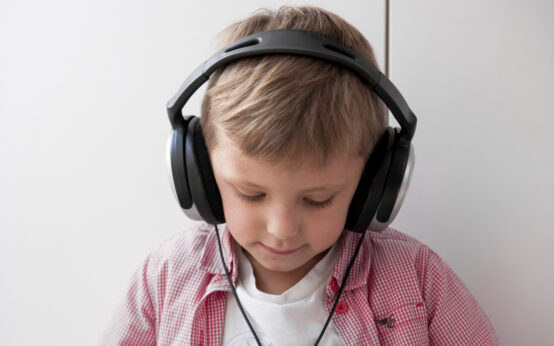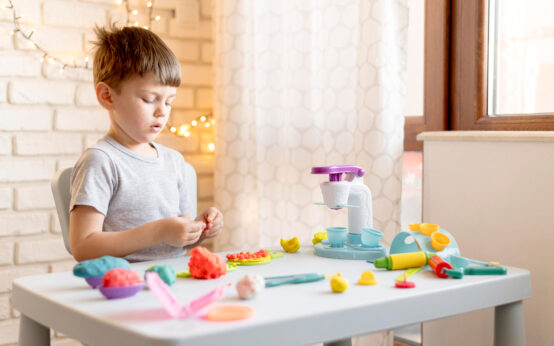Introduction
Raising an autistic child involves navigating through various suggestions, but it’s crucial to recognize that each autistic child is unique. Discovering what works best for both you and your child is an ongoing process.
As you embark on this journey, it’s essential to assess whether adjustments to your parenting style or natural inclinations are necessary to cater to your child’s specific needs. Despite having the best intentions, practices like “helicopter parenting,” hands-off parenting, and permissive parenting may inadvertently complicate matters.
Explore parenting styles and understand why they might not be advantageous when raising an autistic child. Beyond just easing daily routines, choosing an appropriate method can positively impact your child’s development, fostering their strengths and abilities.
Helicopter Parenting
Hovering over their children, helicopter parents vigilantly observe and respond to every aspect of their child’s life. They swiftly step in to tackle problems, smoothen paths, and advocate for special treatment for their kids. However, this parenting style proves to be less than ideal for any child, hindering the development of independence and self-determination.
Parents or guardians of autistic children often gravitate towards helicopter parenting due to concerns about their child facing challenges they may struggle to handle independently – a valid worry. However, the impact of helicopter parenting on autistic children is particularly profound. Unlike neurotypical children who can learn through observation, autistic children rely on direct instruction and hands-on experiences.
Intervening in their tasks denies autistic children the opportunity to comprehend what’s required, face the challenges of attempting, savor the joy of success, and acquire knowledge through the valuable process of learning from failure. In essence, helicopter parenting can impede the essential developmental journey of autistic children.
Competitive Parenting
Parents or guardians participating in Mommy and Me groups are no strangers to competitive parenting, where discussions revolve around whose baby achieved developmental milestones first – from potty training to saying the first word, participating in various classes, mastering dance or singing, engaging in peewee soccer, or even learning a new language like Chinese.
For those with an autistic child, resisting the comparison game becomes challenging, and a sense of the child being left behind may creep in. Succumbing to competitive parenting can lead to a detrimental belief that the child under your care falls short, and as a parent, you may shoulder the blame.
This mindset breeds a feeling of inadequacy for both you and the child you are raising. Although the impact of such sentiments on an autistic child might not be immediately apparent, they are undeniably real and can contribute to a sense of not being good enough for both the caregiver and the child.
Hands-Off (Free-Range) Parenting
Certain parents and guardians advocate for allowing their children to pursue their interests independently, especially for self-directed, self-motivated, and socially eager neurotypical children. However, this approach may not be as suitable for autistic children.
Unlike some neurotypical children who thrive in self-directed pursuits, autistic children often benefit significantly from regular, focused parental engagement. This is crucial because, in many cases, autistic children require active parental involvement to learn essential skills such as pretending, socializing, engaging in conversations, asking questions, and exploring the world.
Without someone to guide them in building these critical skills, autistic children may become more withdrawn and self-focused. This can limit their capacity and inclination to participate in the broader world, reducing opportunities to develop their strengths and reach their full potential. Therefore, active parental engagement is particularly important for the holistic development of autistic children.
Perfectionist (Tiger) Parenting
While some children thrive under parents who demand straight A’s, top athletic performance, perfect grammar, and impeccable table manners, it’s crucial to recognize that these expectations may not be realistic for autistic children.
Autistic children, despite having many strengths, often face challenges meeting typical neurotypical childhood expectations. Their verbal skills might be compromised, making achieving high grades and perfect grammar more difficult. Additionally, difficulties with physical coordination can pose challenges in athletic pursuits.
Setting high expectations for your autistic child is important, but it’s equally important to strike a balance. Unrealistically high expectations can lead to unhealthy levels of stress for both you and the child under your care. Finding a realistic and supportive approach tailored to the individual strengths and challenges of your autistic child is key to fostering a positive and constructive environment for their growth.
Permissive Parenting
As for raising an autistic child, there might be a temptation to shield them from expectations outside of school or therapy, given the challenges they face in these environments. It may seem reasonable to avoid asking them to complete household tasks, learn self-calming techniques, or control their behavior. However, adopting a “do whatever you want” parenting approach can inadvertently lead to the development of habits and behaviors that may pose serious challenges in the future.
While autism does present certain difficulties, it’s essential to recognize that, in most cases, autistic children are capable of achieving a great deal when asked and encouraged. Setting low expectations or providing too little discipline may actually hinder their understanding and ability to meet higher expectations.
Acknowledging a child’s challenges is important, but assuming incompetence can be detrimental. Striking a balance between understanding their unique needs and encouraging them to develop skills and discipline is key to fostering positive growth and preparing them for a fulfilling future.
Frenetic Parenting
From the moment they woke up this morning, an autistic preschooler has undergone five hours of behavioral therapy, along with an hour each of speech and physical therapy, followed by two hours of parent-guided play therapy and four hours of school. The child falls into an exhausted sleep, only for you to immediately scour the Internet for another therapeutic class, program, activity, or resource to add to the already packed schedule.
In the midst of this intense routine, the autistic child under your care may find little opportunity to put their learned skills into practice, meet and connect with other children, or engage in the simple joys of play.
Rather than continuously seeking out and filling the schedule with therapies and activities, it’s worth considering the possibility that a few hours each day dedicated to calm, unstructured parent or guardian-and-child time could be exactly what the child needs to foster growth and thrive. Providing a balance between structured interventions and relaxed, quality time may contribute significantly to the child’s overall well-being and development.
Conclusion
In conclusion, understanding and selecting the right parenting style for raising an autistic child is crucial. Avoiding overprotective tendencies, finding the balance between structure and freedom, and embracing your child’s unique qualities are essential steps. Consult with healthcare professionals, seek support from family and friends, and connect with local organizations specializing in services for families with autistic children for guidance tailored to your child’s needs.
Source
- Sanders, J. (2019). Understanding Parenting Styles: Their Impact on Child Development. New York: Routledge.
- Meyer, S. (2018). The Autism Parenting Guide: Understanding Different Parenting Styles for Autistic Children. Boston: Houghton Mifflin Harcourt.
- Hughes, L. (2020). Parenting the Unique Child: Navigating Challenges with Confidence. Chicago: University of Chicago Press.
- Smith, A. (2017). Autism Spectrum Disorders: Strategies for Effective Parenting. San Francisco: Jossey-Bass.







